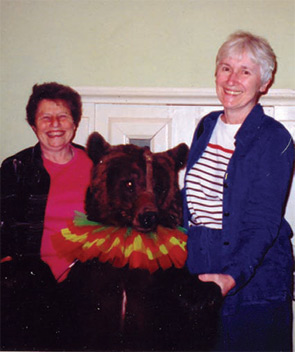“The acceptance [of chronic disease self-management] is coming,” says Dr. Lorig. “What’s really interesting to me is that the acceptance came through aging.”
“Literally everyone is now on the chronic disease bandwagon, in that they recognize that chronic disease is a huge and growing expense, and that 95% of care should be self-care,” says Jay Greenberg, ScD, executive vice president of business development for the NCOA. “But for a lot of years, that acceptance was not the case.”
Like his counterparts in other patient and consumer advocacy organizations, Dr. Greenberg credits Dr. Lorig with helping to propel self-management programs into the mainstream. He is excited about the partnership NCOA inked with Stanford in March 2008 to host and distribute the CDSMP online. “Some people with chronic conditions need to be in a room with other people and some prefer to be anonymous,” he says. “The notion of a self-care program that allows for both social networking and anonymity is really exciting.”

Of Projects, Mentoring, and Mushrooms
Between the demands of current research projects (one currently looking at using the Internet to attract more patients to self-management courses), world travel, and partnering with advocacy organizations, does she have any free time? “Free time?” Dr. Lorig chuckles. “Well, yes, I actually do have a little.” She likes being in the outdoors, so gardening and hunting for wild mushrooms are activities she enjoys. Also high on her list: attending ballet performances and collecting Native American folk dolls and handcrafts (her collection fills several walls in her house, according to Laurent).
Another activity for which Dr. Lorig always finds time, says Laurent, is mentoring. “I really think Kate’s favorite role in life is that of mentor,” she asserts. “She likes to develop people and see them grow.” Laurent was one of those people, recruited by Dr. Lorig from San Jose State, where she was a part-time faculty member, to come to the Patient Education Center in 1986.
Dr. Lorig’s mentoring extends to partner organizations, note Drs. Whitelaw and Greenberg. Developing the agreement between Stanford and the NCOA took many bureaucratic twists and turns, says Dr. Greenberg, but throughout the process Dr. Lorig was “a great colleague,” he enthused. “She’s a problem solver and respects the arenas in which she’s not an expert. Kate appreciates that it takes a team to make all of this stuff happen. And that’s rare. She’s getting the recognition she deserves, and to her credit, it doesn’t go to her head.”
